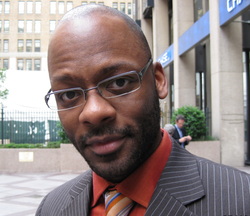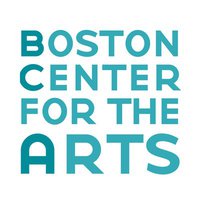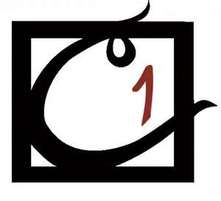 JACQUELINE LAWTON: Why did you decide to get into theatre? Was there someone or a particular show that inspired you? OTIS CORTEZ RAMSEY-ZOE: I wish that this were a more thrilling story. I wish that I could say (as I sometimes do say when I’m in a revisionist mood) that I had encountered the work of Federico Garcia Lorca, Bertolt Brecht, or Tennessee Williams, and that one or all three led me to the theatre. The honest, boring story is that I did a Christmas play when I was in the second grade. I forget the play, but in the story on Christmas Eve all of the toys come to life. I played a duck, and to this day I remember my big line. I’ll spare you the setup and go directly for the punch. The toy soldier says, “Halt, who goes there?” And I respond, “Quack! Quack! You scared the feathers off my back!” Years later as a first-year student at the University of Notre Dame, I glided into the theatre department office and declared my intent to major in theatre. At that point, I had never taken a single drama class. There’s one other story pertaining to the meaning of my name, but I save that one for face-to-face encounters. JL: Where do you feel we are in terms of gender and race in larger landscape of the American Theatre? OCRZ: I think that American theatre is a reflection of American society, values, and ideas. Theatre is not created, produced nor presented in a vacuum, and since theatre is representational it reproduces society’s glories as well as shortcomings and failures. We are where we are, although it is not where we are supposed to be. It is our job to push inside and outside of the theater space and to make theatre that pushes people’s buttons and inspires thoughtful interrogation and change. I include change of hearts and minds in my call. JL: How do you feel your community has addressed the issues of race and gender parity? How has this particular issue impacted you and your ability to practice your craft? OCRZ: This question is slippery—I can’t pin it down like a butterfly. The first trap that catches me is the demarcation “your community.” I don’t mean trap pejoratively; I’m thinking specifically about an enclosure, but I welcome the myriad evocations. In America, we do this thing where we make neat enclosures or categories. We break things apart, and we say “your community” and “their issue” and “how do they solve it.” I am the only member of “my community.” Miles Davis once said, “If you understood everything I said, you’d be me.” Moreover, because I don’t function in one single community, I am also communities. We have to consider that a community is simultaneously:
(Disclaimer: These three short definitions occurred to me instantly, but I am certain that there are other ways of thinking about the term.) I feel a need to continue to interview the term community in addition to the concept of boundaries. As such, I don’t have an answer, but I plan to continue to wrestle with the question. In terms of impact on my ability to practice my craft, hundreds of answers fill my mind. The truest response for me is that it doesn’t. I am able to practice my craft because I am the governor of actions. America’s race and gender issues do not define me (for me) even if they provide a frame for other’s interactions with me. Similarly, the theater’s issues have an impact on opportunities, which are external, and when I say that it doesn’t impact me, I’m referring to internal and personal choices. Of course, this is only a partial response to a complex question. JL: Why is it important that we continue to have these conversations that address gender and race in theatre? OCRZ: I believe that the conversations are essential insofar as they inspire action and provide information that helps people to see what action steps should be taken. Action is what gives these conversations meaning. Without action perhaps we are just a collection of people making word music, in which case we needn’t structure our sentences in complete thoughts since it would be wholly sufficient to arrange words according to sound to create sound scores. JL: What excites you about taking part in the XX Playlab Festival? OCRZ: I am most excited about the lineup of artists, hands down!! Company One and BCA have assembled a remarkable collection of minds. I anticipate being enriched by the fellowship with the artist-scholars. I live to listen; in fact, it’s how I found my career. I am excited about listening to everyone.
0 Comments
Your comment will be posted after it is approved.
Leave a Reply. |
My BlogI'm a playwright, dramaturg, and teaching artist. It is here where you'll find my queries and musings on life, theater and the world. My posts advocate for diversity, inclusion, and equity in the American Theatre and updates on my own work. Please enjoy!
Categories
All
Archives
June 2020
Reading List
|



